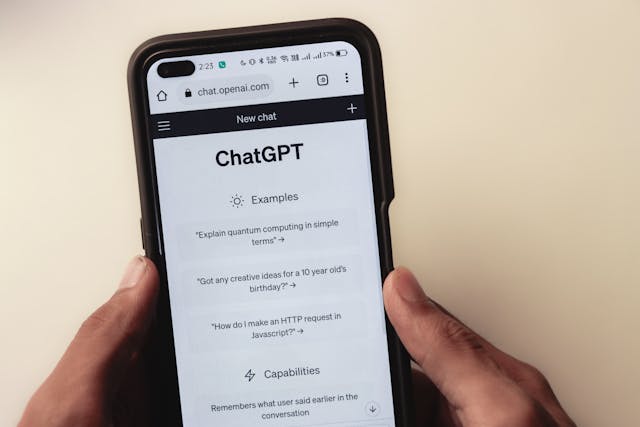
Paid Advertising on International Search Engines Beyond Google
In an era shaped by globalisation and digital transformation, businesses are under increasing pressure to diversify their advertising channels and develop strategies that deliver results beyond the familiar platforms.
While Google Ads continues to dominate the paid search landscape, a range of alternative search engines now offer unique opportunities for international reach. These platforms provide businesses with the tools to target new global audiences in more cost-effective and focused ways.
In this article, we explore how paid advertising on non-Google international search engines can become a core component of your digital marketing strategy, helping you achieve stronger ROI and enabling a tailored approach to diverse markets around the world. If you're considering expansion into new territories, this is essential reading before launching your next campaign.
Moving Beyond Google: The Shift Towards Other Search Engines
In recent years, the paid advertising space has become increasingly competitive. Although Google Ads has long been synonymous with digital marketing, its saturation and rising costs have led many businesses to seek out alternatives. These non-Google platforms offer a way to engage with untapped audiences while managing advertising budgets more effectively.
Meanwhile, the world is more interconnected than ever, and international marketing is no longer optional for brands seeking to grow beyond their domestic markets. Simultaneously, the rise of artificial intelligence is revolutionising how users interact with search – with tools like Gemini, ChatGPT, and even voice assistants such as Siri reshaping the traditional Google-dominated experience.
This growing reliance on new technologies is creating a shift that threatens Google's monopoly and presents a perfect opportunity for brands to explore other markets and rethink their strategies for alternative search platforms.

Key Advantages of Advertising on Non-Google International Search Engines
While Google Ads remains the frontrunner, other international platforms offer strategic benefits worth considering—especially for brands targeting global expansion. Here are some of the most notable advantages:
Cost Efficiency and Lower CPC
Alternative search engines tend to have significantly lower competition for ad placements. This typically results in lower cost-per-click (CPC) rates and reduced overall campaign expenses, enabling businesses to drive quality traffic without overstretching their budgets.
Advanced Audience Targeting
Many non-Google platforms offer refined audience segmentation tools that align with specific markets, languages, and cultural nuances. This enables advertisers to deliver tailored messaging to audiences less saturated with Google Ads, often resulting in higher conversion rates and more authentic engagement.
Adaptation to Emerging Technologies
AI-driven platforms like Gemini and ChatGPT are transforming the search experience by focusing on voice-based and intent-aware interactions. Several alternative search engines have embraced these advancements faster than Google, giving advertisers a chance to connect with users through cutting-edge formats that may not yet be fully supported by Google.
Flexibility and Local Market Adaptation
Each international market has its own distinctive features—ranging from language and cultural preferences to how users interact with search engines. Non-Google platforms tend to offer greater adaptability in tailoring creatives and targeting strategies to local requirements. Additionally, in regions where Google is less dominant or even unavailable, these alternatives are essential for market entry.
Innovation and Continuous Improvement
Unlike Google, which is often focused on managing scale and regulatory pressures, emerging search engines are investing heavily in innovation. From improved user interfaces to automated campaign tools, these platforms are rapidly evolving to deliver smarter, more intuitive ad experiences. This constant development ensures advertisers can stay competitive and agile.
By leveraging these advantages, businesses aiming for global growth can craft precise, effective advertising strategies that tap into the full potential of international search engines—delivering high impact at a lower cost.

Leading International Search Engines for Paid Campaigns
Among the most notable alternatives to Google is Bing via Microsoft Ads, which offers a robust and affordable solution for businesses aiming to avoid Google's competitive pressure. With lower CPCs and straightforward campaign migration tools, Microsoft Ads allows advertisers to target high-quality audiences—especially in Western markets—without the high costs of Google.
Yandex, the dominant search engine in Russia and parts of Eastern Europe, provides deep cultural and linguistic insight. Its advanced campaign management tools and local targeting capabilities make it an ideal platform for brands looking to penetrate these regions with accuracy and precision.
For those targeting China, Baidu is the undisputed leader. This platform offers near-complete access to the Chinese digital audience, with full language and cultural integration. Its advanced targeting and real-time optimisation features, alongside AI-powered voice search capabilities, position it as a top-tier choice for navigating China’s vast market.
Naver, South Korea’s top search engine, is another important platform. Naver excels at delivering content tailored to Korean consumers and offers advanced segmentation based on behavioural and demographic data. Its interactive ad formats help drive higher engagement and impressive ROI, making it essential for success in the Korean market.
Each of these platforms presents unique advantages—from cost savings to deeper local integration—offering brands the opportunity to reach new audiences with precision and purpose.
Winning Strategies for Non-Google Paid Search Campaigns
To succeed with international search advertising, businesses must adopt a tailored approach based on each platform's capabilities and market-specific characteristics. Here are key strategic recommendations:
- Conduct In-Depth Market Research:
Understand your target region’s cultural, linguistic, and consumer behaviour trends. Tailor your messaging and creative assets accordingly—for example, Chinese campaigns on Baidu require culturally relevant language, while South Korean campaigns on Naver should align with local consumption patterns. - Adapt Creative and Formats per Platform:
Each search engine has its own ad formats and analytics tools. Take advantage of these unique features—use interactive and voice-based ads where applicable, especially on platforms integrating AI capabilities. Ensure your messaging conveys trust, relevance, and innovation. - Invest in Analytics and Real-Time Optimisation:
Leverage advanced tracking and data analysis tools to monitor campaign performance continuously. By tracking metrics such as CPC, conversion rates, and ROAS, you can refine campaigns in real time for optimal effectiveness. - Diversify Your Ad Channels:
Don’t rely on a single platform. Combining multiple search engines allows you to benefit from each one's unique strengths, reach different audience segments, and spread risk. A multi-platform strategy boosts exposure, reduces costs, and enhances reach across diverse regions.

Whether your aim is to reduce costs, reach new audiences, or align your advertising approach with today’s global digital landscape, paid campaigns on non-Google international search engines offer rich and dynamic opportunities. By tailoring your strategy, embracing emerging technologies, and leveraging multiple platforms, you can create high-performing campaigns that deliver measurable results worldwide.
FAQ About PPC in other platform than Google
What is international paid search advertising beyond Google?
It’s a digital advertising strategy that uses alternative search engines to Google—like Bing, Baidu, Yandex, and Naver—to target global audiences while benefiting from lower costs and more market-specific targeting.
What are the benefits of advertising outside of Google?
Lower CPC, precise audience segmentation for specific regions, innovative ad formats (such as AI-powered and voice-based ads), and the ability to diversify campaigns for improved ROI.
Which international search engines are best for paid campaigns?
Bing (Microsoft Ads) for Western markets, Yandex for Russia and Eastern Europe, Baidu for China, and Naver for South Korea—all offering localisation and unique audience targeting tools.
How can campaigns be tailored for international advertising?
Through deep market research, culturally adapted messaging, local language content, and the use of native ad formats and behavioural targeting tools specific to each region.
How do you measure success on non-Google platforms?
By using advanced analytics to track key performance metrics like traffic, conversions, CPC, and ROI—enabling continuous campaign optimisation in response to shifting market conditions.
Asaf Shimoni
Founder of Alt Digital Marketing, with nearly 20 years of experience in digital marketing. An expert in SEO and paid campaigns, helping tech companies, eCommerce, and B2B businesses achieve steady growth through tailored marketing strategies.

REQUEST A WEBSITE CHECK
See how your website could be performing better.
